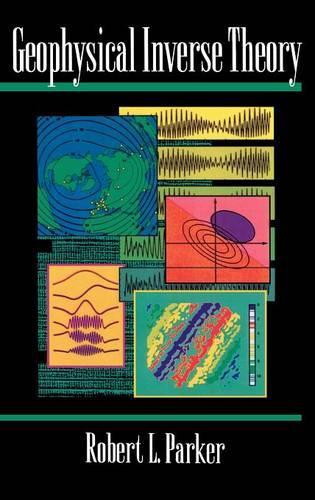
Geophysical Inverse Theory
(Hardback)
Publishing Details
Geophysical Inverse Theory
By (Author) Robert L. Parker
Princeton University Press
Princeton University Press
16th August 1994
United States
Classifications
Professional and Scholarly
Non Fiction
Earth sciences
550.151545
Physical Properties
Hardback
400
Width 152mm, Height 235mm
709g
Description
Inverse theory concerns the mathematical techniques that enable researchers to use the available information to build a model of the unknown system or to determine its essential properties. This monograph provides a systematic development of inverse theory at the graduate and professional level that emphasizes a rigorous yet practical solution of inverse problems, with examples from experimental observations in geomagnetism, seismology, gravity, electromagnetic sounding and interpolation. Although illustrated with examples from geophysics, this book has broad implications for researchers in applied disciplines from materials science and engineering to astrophysics, oceanography and meteorology. Parker's approach is to avoid artificial statistical constructs and to emphasize instead the reasonable assumptions researchers must make to reduce the ambiguity that inevitably arises in complex problems. The structure of the book follows a natural division in the subject into linear theory, in which the measured quantities are linear functionals of the unknown models, and nonlinear theory, which covers all other systems.
Reviews
"This is [a] very good value for [the] money... The book describes forefront techniques which will be of use to established researchers, and yet, by its very style, the book is highly accessible to beginners. I heartily recommend it, not only to geophysicists, but to any scientist who is concerned with state-of-the art methods of interpreting his or her data."--Geophysical Journal International
Author Bio
Robert L. Parker is Professor of Geophysics at the Scripps Institute of Oceanography at the University of California, San Diego.
